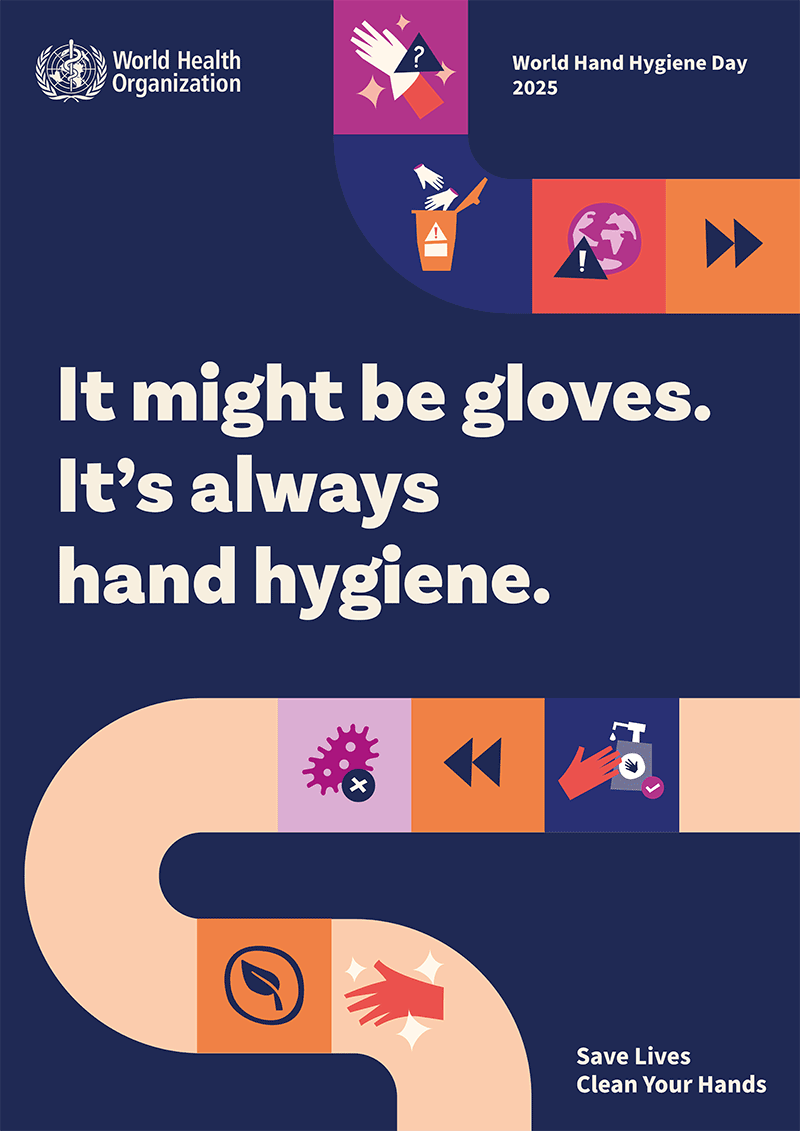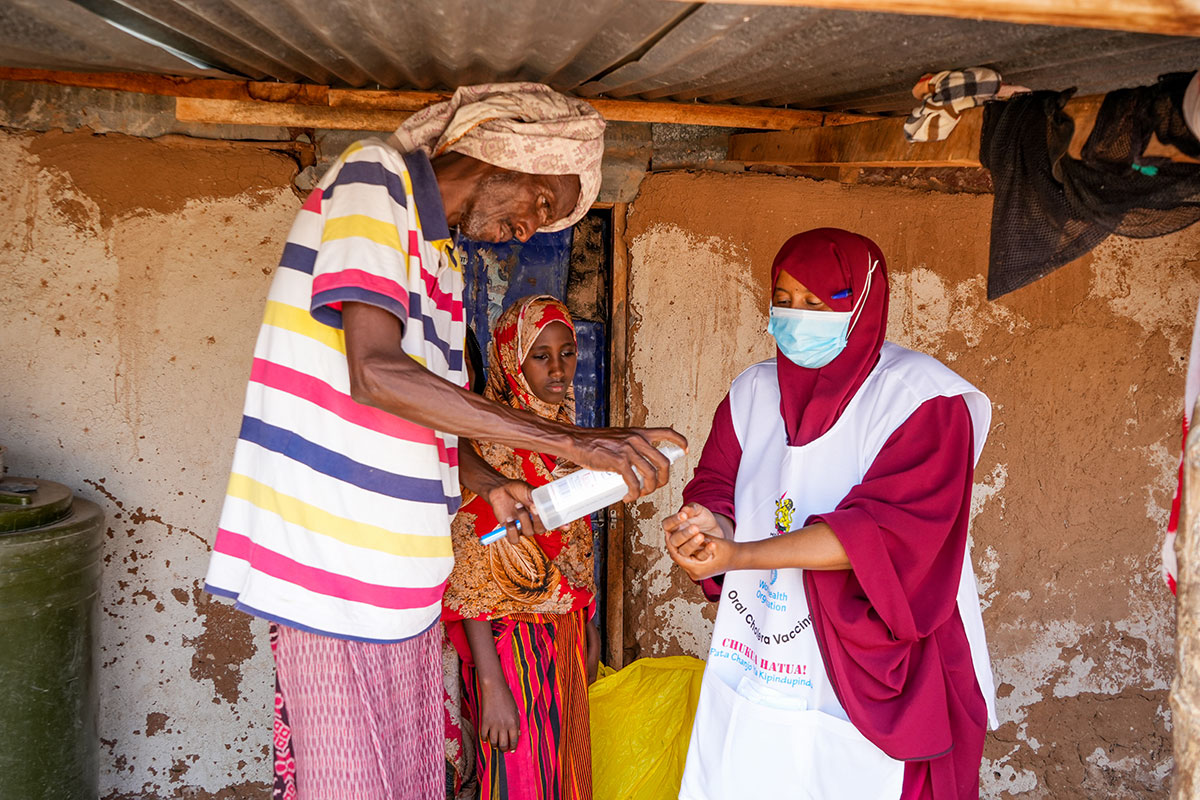
World Hand Hygiene Day 2025
It might be gloves. It's always hand hygiene
The theme of this year’s World Hand Hygiene Day (WHHD), ‘It might be gloves. It's always hand hygiene’, highlights the importance of clean hands and appropriate glove use in the health care workflow.
 Hand hygiene is an infection prevention and control (IPC) minimum requirement in all health care facilities. Without it, facilities run the risk of unintentionally spreading diseases.
Hand hygiene is an infection prevention and control (IPC) minimum requirement in all health care facilities. Without it, facilities run the risk of unintentionally spreading diseases.
Held each year on 5 May, WHHD promotes hand hygiene as a simple yet powerful intervention that can protect patients, health care workers and visitors from the harm caused by preventable health care-associated infections (HAIs).
This year, WHHD highlights the importance of including hand hygiene within national IPC strategies and standard operating procedures at facility level as per WHO Global action plan and monitoring framework on infection prevention and control 2024–2030 recommendations, and raising awareness about the environmental and climate impact of gloves on waste generation and management.
The Global action plan and monitoring framework sets hand hygiene compliance as a key national indicator, to be established in all reference hospitals by the end of 2026. Currently, just 68% of countries report implementation.
In addition, the WHO Framework for Action 2024–2030 for water, sanitation, hygiene, waste and electricity services in all health care facilities serves as a guide for collaborative global and national efforts to deliver safe and sustainable water, sanitation and hygiene (WASH), health care waste management and reliable electricity and build safe, climate-resilient facilities. This requires integrating WASH and waste requirements into health system planning, programming, financing, implementation and monitoring.
The situation in the Region
In the Eastern Mediterranean Region, beset by active and protracted conflicts and other humanitarian crises, effective IPC programmes and practices, including hand hygiene and basic WASH services, are critical to safeguard patients and health workers.
An estimated 40% of health care facilities in the Region lack basic hygiene services, and 71% lack comprehensive health care waste management services. There is an urgent need for investment in WASH services to improve IPC.
While the challenges and resource constraints are formidable, it is encouraging to see countries in the Region scaling up IPC minimum requirements. Currently, 16 of the 22 countries and territories in the Region have active IPC programmes, and 19 have developed national IPC guidelines.

How WHO promotes hand hygiene

The World Health Organization (WHO) plays a leading role in promoting hand hygiene practices, not least through the annual WHHD campaign. Among the recommendations WHO is promoting this year are:
optimal hand hygiene practices using the WHO 5 Moments for hand hygiene and appropriate glove use within health care workflows. (It is important to remember that medical gloves get contaminated as easily as bare hands. They do not offer 100% protection. Gloves should be removed, for example, after touching a patient, and hand hygiene performed immediately as per the WHO 5 Moments);
integration of hand hygiene into national IPC strategies and facility-level standard operating procedures;
ensuring that hand hygiene products and gloves are available at points of care and when needed during workflows;
awareness raising about the environmental impact of improper use of gloves on waste generation and management. Excessive glove use contributes significantly to the volume of health care waste. Appropriate glove use and hand hygiene can help minimize this. Using gloves when not indicated wastes resources and does not necessarily reduce the transmission of germs; and
proper glove use to help prevent the spread of infections. Gloves are not a substitute for hand hygiene. They should be used only when necessary, and hand hygiene practiced before and after glove use.
Hand hygiene, IPC and WASH as preventive measures
Improved IPC, including hand hygiene and WASH, is urgently needed to provide minimum protection and meet HAIs and antimicrobial resistance (AMR) reduction targets. Governments and health authorities are urged to prioritize integration of hand hygiene into national IPC strategies and ensure that all health care facilities have standard operating procedures for hand hygiene.
WHO provides a variety of resources for WHHD, including guidelines, posters and virtual badges, to support hand hygiene campaigns. WHO also offers a Hand Hygiene Self-Assessment Framework to evaluate hand hygiene practices in health care facilities.
By working together with stakeholders and partners to promote IPC, including hand hygiene and strengthening basic WASH services, we can help prevent the spread of HAIs, including infections caused by antimicrobial-resistant pathogens.





